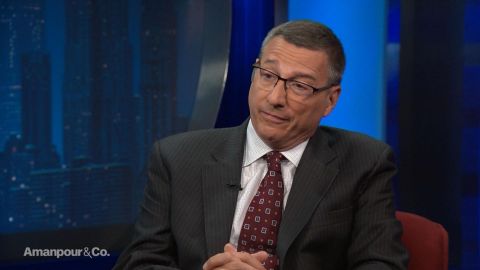Read Transcript EXPAND
CHRISTIANE AMANPOUR: So, look, you’ve just seen and heard Jomana’s package, her report on the cheetahs in Somaliland. She reports that time is not on the cheetah’s side. Tell me, from your perspective, how dramatic it is.
CRAWFORD ALLAN, SENIOR DIRECTOR, WORLDWIDE LIFE FUND: It’s something that is really true. With fewer than 7,000 cheetahs left in the world, and this really large burgeoning growth in demand for live cheetahs as pets, particularly sent viral via social media, the clock is ticking for cheetahs, particularly in areas like Ethiopia or the horn of Africa. And it’s a population and a range of — they just cannot afford to lose even a single cheetah.
AMANPOUR: You are, obviously, on the front line of trying to stop this kind of trafficking. But I just want you to again put it in perspective. Because, you know, obviously, we’ve done a bit of research and we find that cheetahs have long been an accessory. Whether it was the pharaoh, whether it was Josephine Becker, or whether it was the American actress who was living in London, you know, walking them around on a leash. Cheetahs have been photographed as pets for a long time. What is different now?
ALLAN: I think the difference now is the explosion of access to the Internet, to social media and to e-commerce sites. And the fact that there are systems in place where anybody in the world can connect to anybody else regardless whether you’re sitting in Tokyo, whatever it is, you can at the click of a button be aware that somebody is selling a cheetah, or you can be aware that somebody has got this incredible super car that you really admire that person but they’ve also got a cheetah sitting on the bonnet. And if you look right now on any social media site, and search for cheetahs, you’ll see those images yourself. You’ll see videos like that where people have literally the cheetah hanging his head out of the window of some incredible super car particularly in the Gulf states.
AMANPOUR: So, OK, the Gulf states are the worst offenders. Even though there’s a law there against owning this kind of wildlife but it’s not really enforced, is it?
ALLAN: It certainly depends on the country. Some countries are already trying to clamp down like the United Arab Emirates, which in 2017 prohibited possessions of live cheetahs. But, of course, these things still happen. And what do you do with the cheetahs that are already in possession? Some of the countries like Saudi Arabia are still trying to get there and get things right. They still have a demand and the laws are not quite as resolute as they should be and enforcement is still needing great improvement to clamp down on this problem.
About This Episode EXPAND
Sister Helen Prejean joins Christiane Amanpour to discuss her activism fighting the death penalty. Former anti-abortion leader Reverend Rob Schenk sits down with Michel Martin to explain how inflammatory rhetoric can turn deadly. Correspondent Jomana Karadsheh reports on the poaching of cheetahs in Somaliland. Crawford Allan joins the program to elaborate on the illegal trade of exotic animals.
LEARN MORE


